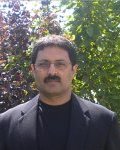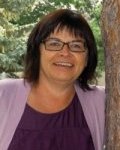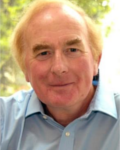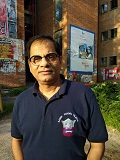International Editorial Board

Andy Storey
Andy Storey is a Lecturer at the School of Politics and International Relations, University College Dublin (UCD). He had research and published widely on the topics of international development, neoliberalism and power relations, and has played an instrumental role in the foundation and operation of a number of NGOs dealing with development issues and the rights of minority communities in Ireland. These include the Migrant Rights Centre, Action From Ireland, the Irish Debt and Development Coalition, and the Irish Refugee Council. Andy is a regular contributor to the online political magazine Irish Left Review, while his academic publications include 'Measuring Human Development', in From the Local to the Global: Key Concepts in Development Studies (2nd ed.) (London: Pluto, 2009), and 'The ambiguity of resistance: Opposition to neoliberalism in Europe', Capital & Class, Vol. 32, No. 3 (Autumn 2008), pp. 55-85.

David Jefferess
David Jefferess is Associate Professor of English at the University of British Columbia (Okanagan), Kelowna, Canada. He teaches courses in postcolonial literary and cultural studies that focus on colonialism as a cultural project, the ideal and practice of decolonisation, critical reading practices informed by engagement with the staandpoint(s) of the text and the reader, globalisation and alter-globalisation, and the idea of human rights. His current research develops out of his doctoral studies, which focused on notions of resistance within the field of postcolonial studies: Postcolonial Resistance: Culture, Liberation, and Transformation (Toronto: University of Toronto Press, 2008). He has also published a number of articles in the areas of global citizenship, humanitarianism and human rights, and is current working to critically engage with the way humanitarian and development aid discourse constitute relations between human beings.

Dip Kapoor
Dip Kapoor is a Research Associate at the Center for Research and Development Solidarity (CRDS), an Adivasi/Dalit rural organisation in Orissa, India and Professor of International Education and Development at the University of Alberta, Canada. His applied and academic interests include: Critical Studies in International Development/Globalisation and Education; Critical Global Education (colonialism, capitalism and the politics of domination/resistance); Adult/Popular Education, Subaltern Social Movements and NGOs; Sociology of Race, Racialisation/Casteism and Education; and Critical Participatory Action Research (CPAR). He serves on a number of editorial boards and has published widely in his areas of expertise: http://www.ualberta.ca/~dkapoor/dkapoorpublications.htm

Doug Bourn
Doug Bourn is Director of the Development Education Research Centre at the University of London and editor of the International Journal for Development Education and Global Learning. He teaches on the subjects of development education, globalisation and global citizenship, and has published widely on these topics. His publications include Global Skills (London: LSIS, 2008) and 'Development Education' in J. Arthur & A. Peterson (eds.) Companion to Education (London: Routledge, 2011). Doug also holds a number of editorial and advisory positions. He is a member of the UNESCO UK Committee and a Fellow of Royal Society of Arts.

James Goodman
James Goodman is an Associate Professor in the Social and Political Change Group of the Faculty of Arts and Social Sciences at the University of Technology, Sydney, where he has been based since 1996. He conducts research into social change and global politics, with a special focus on global justice and climate justice. He draws from a disciplinary background in political sociology, international relations, political economy and political geography, and he has published more than eight books. In 2007 he was one of the three co-founders of the Research Centre in Cosmopolitan Civil Societies.

Linda Briskman
Linda Briskman holds the Margaret Whitlam Chair of Social Work at Western Sydney University. Her practice, policy and research focuses primarily on the rights of indigenous peoples and asylum seekers in local and global contexts. More recent research is on challenging Islamophobia. She has published extensively on social work and human rights, Indigenous rights in Australia, and the violation of the rights of asylum seekers. Human Rights Overboard: Seeking Asylum in Australia (Melbourne: Scribe, 2008), co-authored with Susie Latham and Chris Goddard, won the 2008 Australian Human Rights Commission prize for literature (non-fiction). Her most recent book is Social Work with Indigenous Communities: A Human Rights Approach (2014).

Lynette Shultz
Lynette Shultz is Associate Professor of Education and Co-Director, Centre for Global Citizenship and Research, at the University of Alberta, Canada. Her primary research and teaching interests include: global social justice and education policy; global governance, citizenship and education; educational leadership and social justice; conflict and processes of change; and human rights education. She also sits on a number of learned bodies, including the editorial board of the International Journal of Development Education and Learning. Recent publications include Global citizenship education in post-secondary institutions: Theories, practices, policies (New York: Peter Lang), co-edited with Ali Adbi and George Richardson, and 'Conflict, dialogue and justice: Exploring global citizenship education as a generative social justice project', Journal of Contemporary Issues in Education, Vol. 1, No. 2 (2009), pp. 3-15.

Roland Tormey
Roland Tormey is Coordinator of the Teaching Support Centre at L'École Polytechnique Fédérale de Lausanne, Switzerland. He has twenty years' experience of primary, secondary, and further & higher education, and was previously head of the teacher education department at Mary Immaculate College, University of Limerick. He has written and taught on the subjects of initial teacher education, education inequality, the politics of identity in education, and on addressing global development issues in education. He has also been involved in education research in countries such as Rwanda, Zambia and Uganda. Publications include 'Critical Thinking and Development Education: How Do We Develop Meta-Cognitive Capacities?', in Development Education in Policy and Practice (London: Palgrave Macmillan, 2014), and 'The centre cannot hold: Untangling two different trajectories of the "approaches to learning" framework', Teaching in Higher Education, Vol. 19, No. 1 (2014), pp. 1-12.
In addition to his academic work, Roland has worked as and advisor to, and representative of, the government and various statutory agencies. For instance, he represented the Government of Ireland on the United Nations Economic Commission for Europe (UNECE) Steering Committee and Task Force on the Decade of Education for Sustainable Development and was Co-Chair of the UNECE Expert Group on Competences in ESD, 2009-2011.
Ros Wade
Ros Wade is Professor in Education for Sustainability (EFS) at London South Bank University (LSBU). Prior to this she had 14 years of experience working for Oxfam, developing research, policy and practice in development education. Over the last 10 years she has been involved in a number of capacity building projects in Tanzania, China, Hungary and most recently in Sub Saharan Africa. With an expert team from DE and EE NGOs, she has developed a ground breaking masters distance learning (www.lsbu.ac.uk/efs) programme (recognised by UNEP and Unesco) and is researching the potential for development impact with regard to Millennium Development Goals.
In 2008 she was appointed by the Secretary of State for International Development as a UK Commonwealth Scholarship Commissioner and in this role she has taken a lead in addressing issues of gender and development . At LSBU she set up and now chairs the London Regional Centre of Expertise (http://www.londonrce.kk5.org) in Education for Education For Sustainable Development, part of the UN University’s global network of universities.
Ros is a member of Unesco’s International Teacher Education network and the Council for Education in the Commonwealth. She is also a member of the TEESnet Steering Group and is on the management committee for the Humanities Education Centre, Tower Hamlets.
Current research interests include sustainable development, education, political action and social change. Past publications include a commissioned policy paper for UNESCO (2008) on developing synergy between EFA and ESD which has been translated into a number of different languages and has been influential in international education discourses. More recent publications include a chapter on ‘Building communities locally and globally’ in The Sustainable University: Progress and Prospects (London: Earthscan, 2013). She is currently working on a book for Policy Press, The challenge of sustainability: linking politics, education and learning.

Vanessa de Oliveira Andreotti
Vanessa de Oliveira Andreotti is the Canada Research Chair in Race, Inequalities and Global Change at the University of British Columbia, Vancouver, Canada. Her research examines historical and systemic patterns of reproduction of inequalities and how these limit or enable possiblities for collective existence and social change. Her publications in this field include analyses of political economies of knowledge production, discussions of the ethics of international development, and critical comparisons of ideals of globalism and internationalisation in education and in global activism. Her academic work is committed to protecting the public role of the university as a critic and conscience of society and as a space of independent, multi-voiced, critically informed and socially accountable debates about alternative futures. She is joint editor of Critical Literacy:Theories and Practices. Notable publications include Actionable Postcolonial Theory in Education (New York: Palgrave, 2011) and Postcolonial Perspectives on Global Citizenship Education (New York: Routledge, 2012), co-authored with Lynn Mario T.M. de Souza.

David Selby
David Selby is Founding Director of Sustainability Frontiers, an international non-governmental academic organisation based in the United Kingdom and Canada. He is also an Associate of the Centre for Human Rights and Citizenship Education, Dublin City University Institute of Education, and Adjunct Professor in the Faculty of Education, Mount St Vincent University, Halifax, Nova Scotia, Canada. He was previously (2003-9) Professor of Education for Sustainability and Director of the Centre for Sustainable Futures, University of Plymouth, United Kingdom and, before that (1992-2003), Professor of Education and Director of the International Institute for Global Education at the Ontario Institute for Studies in Education of the University of Toronto, Canada. His research and writing interests cover the broad areas of global, sustainability and child-friendly education but his current preoccupations largely lie in the areas of climate change education, disaster risk reduction education and transformative environmental education. His most recent publications, all with Sustainability Frontiers colleague Fumiyo Kagawa, include: Sustainability Frontiers: Critical and Transformative Voices from the Borderlands of Sustainability Education (Budrich, 2015); Child-friendly Schooling for Peacebuilding (UNICEF, 2014); Towards a Learning Culture of Safety and Resilience (UNESCO/UNICEF, 2013); Climate Change in the Classroom (UNESCO, 2013). David has been involved in educational change, curriculum reform and pedagogical renewal initiatives in Europe, North and South America, Asia, Australasia/the Pacific, and the Caribbean. His allegiance is to participatory pedagogies and research methodologies. For further details go to: http://www.

Ajay Kumar
Dr. Ajay Kumar is an Associate Professor at the Department of Adult Education, School of Social Sciences, Jawaharlal University (JNU, New Delhi), a premiere national university in India. He has been the Director of the Department of Adult Education at the JNU. He is currently also the In-charge (Member-Secretary) of the university’s flagship ‘Community Engagement and Development Program’, where he is working for community development among the poor living in various slum dwellings in New Delhi. Dr. Kumar has his academic training both in India and abroad (UK). By training, primarily a political scientist, his academic and research interests span the multidisciplinary area of developmental politics, development studies, critical and popular education, adult education and lifelong learning, and community development, training and education. Dr Kumar has been the pioneer in introducing two new taught courses (first-of-its-kind) in an Indian university, namely 'Development Education' (for PG students) and 'Citizenship Education and Globalisation: Contemporary Issues and Perspectives' (for UG students). He has the experience of working both as an activist and an academic researcher in the area of child rights, eradication of child labour through rescue, schooling and rehabilitation and empowerment of women, and other marginalised communities through various projects and programs in India. He has worked with Government of India, various state agencies, ILO and UNESCO. Dr. Kumar has some very useful national and international publications both as book chapters and journal articles.





